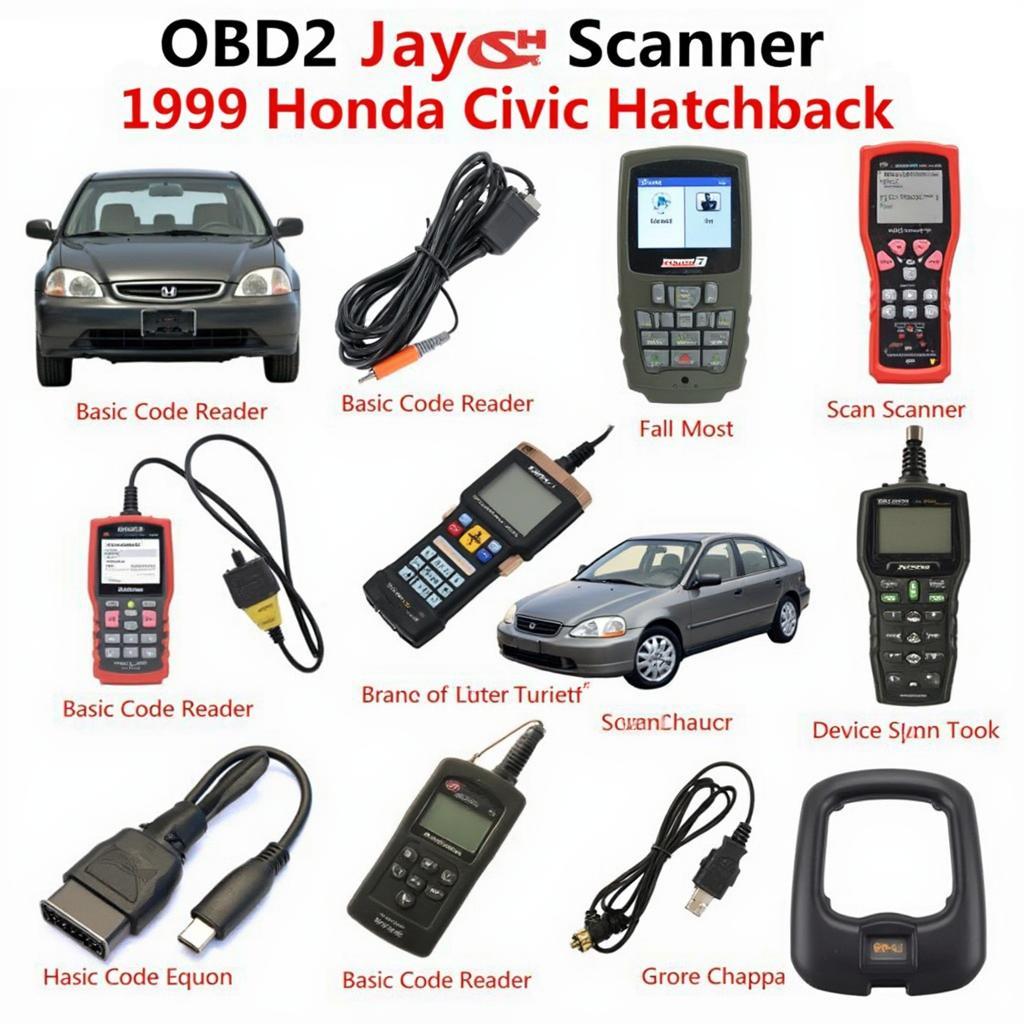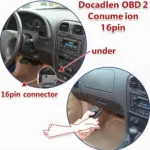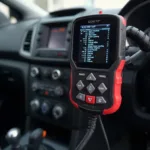Is your 1999 Civic Hatch OBD1 or OBD2? This is a common question among Civic owners, especially those looking to perform diagnostics or modifications. Understanding your car’s OBD system is crucial for choosing the right diagnostic tools and understanding its emissions system. This article will definitively answer this question and provide valuable insights into both OBD systems.
Understanding OBD Systems
Before diving into the specifics of the 1999 Civic Hatch, let’s briefly review the differences between OBD1 and OBD2. OBD stands for On-Board Diagnostics, a system that monitors your car’s emissions and performance. OBD1 is an older system, generally found in vehicles manufactured before 1996. It’s simpler than OBD2, offering basic diagnostic capabilities. OBD2, introduced in 1996 for most vehicles sold in the United States, is a more sophisticated system providing more comprehensive diagnostics and standardized connectors.
Is a 1999 Civic Hatch OBD1 or OBD2 Compliant?
The answer is OBD2. All 1999 Honda Civics sold in the United States, including the hatchback model, are equipped with the OBD2 system. This means your 1999 Civic Hatch uses the standardized OBD2 16-pin connector, located typically under the driver-side dashboard.
Why is Knowing Your Civic’s OBD System Important?
Knowing your Civic’s OBD system is vital for several reasons:
- Choosing the Right Scanner: You need an OBD2 scanner to diagnose and troubleshoot issues in your 1999 Civic Hatch. An OBD1 scanner simply won’t work.
- Emissions Testing: OBD2 compliance is essential for passing emissions tests. The system monitors various components related to emissions control, ensuring your car meets environmental regulations.
- Performance Tuning: Understanding the OBD2 system allows you to monitor various engine parameters and make informed decisions about performance modifications.
- Check Engine Light Diagnostics: When your check engine light illuminates, an OBD2 scanner can retrieve the trouble codes stored in the car’s computer, helping you pinpoint the problem.
 OBD2 Scanner Compatible with 1999 Civic Hatch
OBD2 Scanner Compatible with 1999 Civic Hatch
“Knowing the specific OBD system in your vehicle is like having the right key to unlock its diagnostic secrets,” says John Miller, a seasoned automotive technician with over 20 years of experience. “It’s the first step towards effective troubleshooting and maintenance.”
Common OBD2 Trouble Codes in 1999 Civic Hatches
While the OBD2 system itself is standardized, certain trouble codes are more common in specific vehicle models. Some frequently encountered codes in 1999 Civic Hatches include:
- P0420: Catalyst System Efficiency Below Threshold (Bank 1)
- P0134: O2 Sensor Circuit No Activity Detected (Bank 1 Sensor 1)
- P0171: System Too Lean (Bank 1)
“Understanding common trouble codes for your specific model can save you valuable time and money when diagnosing issues,” adds Sarah Johnson, an automotive engineer specializing in OBD systems. “It allows you to focus your troubleshooting efforts and avoid unnecessary repairs.”
Conclusion
So, is a 1999 Civic Hatch OBD1 or OBD2? It’s definitively OBD2. Understanding this ensures you use the correct diagnostic tools and procedures for your vehicle. From choosing the right scanner to understanding common trouble codes, knowing your Civic’s OBD system empowers you to maintain and troubleshoot your car effectively. is a 99 civic obd1 or obd2
FAQ
- Where is the OBD2 port located in my 1999 Civic Hatch? Typically under the driver-side dashboard.
- Can I use an OBD1 scanner on my 1999 Civic Hatch? No, you need an OBD2 scanner.
- What does OBD2 stand for? On-Board Diagnostics, version 2.
- Why is my check engine light on? An OBD2 scanner can retrieve the trouble codes to help diagnose the issue.
- What is a common OBD2 trouble code for a 1999 Civic Hatch? P0420 (Catalyst System Efficiency Below Threshold) is one example.
- Is my 1999 Civic OBD1 or OBD2? It’s OBD2.
- Where can I find more information about OBD2 scanners? is a 99 civic obd1 or obd2
Need assistance? Contact us via WhatsApp: +1(641)206-8880, Email: [email protected] or visit our office at 789 Elm Street, San Francisco, CA 94102, USA. Our customer service team is available 24/7.

